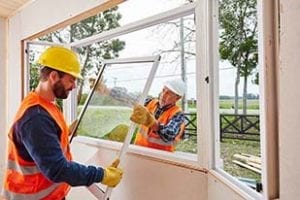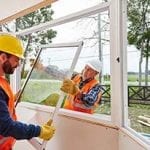 Let’s face it, replacing windows is expensive. It’s a major decision many homeowners will have to save up for months to afford. However, the money you save on utility bills will make it all worthwhile. The right windows can keep your home at a comfortable temperature by keeping the inside air in and the outside air out. This will reduce your reliance on heaters and air conditioners and you will immediately start to see savings on your monthly bills. Read on to find out how replacing your windows can save you money.
Let’s face it, replacing windows is expensive. It’s a major decision many homeowners will have to save up for months to afford. However, the money you save on utility bills will make it all worthwhile. The right windows can keep your home at a comfortable temperature by keeping the inside air in and the outside air out. This will reduce your reliance on heaters and air conditioners and you will immediately start to see savings on your monthly bills. Read on to find out how replacing your windows can save you money.
Windows and Energy
If you don’t have quality windows, you are spending up to 25% more than you should be on your heating and cooling costs. If your home is more than 30 years old and you haven’t gotten your windows replaced recently, it’s likely you are just throwing away money on utility bills. Sometimes windows can feel hot in the summer and cold in the winter or if they are drafty or if they become foggy or cloudy, these are all signs that they are not doing all they can to keep your home energy efficient.
How to Make Sure Your Windows Are Energy Efficient
Fortunately, today, most windows come with an Energy Star rating. This means you can trust them to be energy efficient. However, to make sure you are making a smart choice when getting new windows installed, here are some things to look out for.
Double Paned Windows
Double paned windows are preferable to single paned windows. That extra layer offers more insulation keeping the cold out in the winter and retaining cool air in the summer.
Low-E Coating
Newer windows typically have a low-E coating and are filled with Argon or Krypton gas. The gas increases the insulation while the coating minimizes UV rays that can increase heat in homes, fade furniture and fill the home with radiation.
Vinyl Windows
The material you use on your windows should also be considered. 100% virgin vinyl is best. These windows maintain their good looks and do not fade and get brittle over time.
Insulated Framework and Fusion Welds
Many windows have hollow frames that are glued or screwed together. These windows offer little insulation. It’s preferable to get windows that are fusion welded and insulated. These will provide the ultimate in energy efficiency and they will not rot, mold or absorb water.
Low U-Factor
The U-Factor is the rate at which the window conducts non-solar heat flow. Windows with a low U-factor are preferable for colder climates.
Solar Heat Gain Coefficient (SHGC)
The SHGC is the measure of the solar radiation admitted through the window. Windows with a low SHGC will keep heat out and are recommended for warmer climates.
Window replacement is expensive. However, the money you end up saving on your utility bills will more than make up for it. Hopefully this article will help you find windows that do all you can to keep your utility costs low. Good luck making the best choice for your home and be sure to let us know if you need help on installation or for any of your roofing, siding and window needs!
